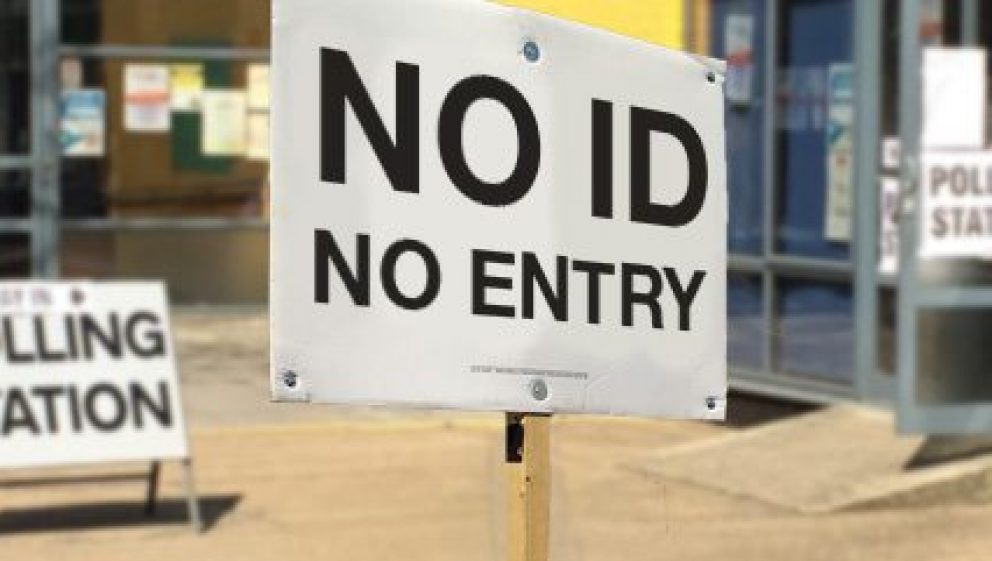Chris Game
The recent Independent Inquiry report, chaired by Professor Alexis Jay, into the serial sexual abuse of children in the residential care (or neglect) of Lambeth Council from the 1960s to 1990s makes dire, sickening reading. It is lessened not one jot by being semi-historic, particularly for someone like myself who had at least intermittent dealings with the councillors and officers of Lambeth and other London councils during the 1980s, the most politically malevolent of those decades.
Pause for some indulgent, but explanatory, personal history – only three paras, promise! I remember that key mid-80s period vividly. My early INLOGOV years, in the early 80s, felt like a kind of extended apprenticeship. I’d been appointed to launch the Department’s undergraduate PMA (Public Policymaking & Administration) degree, of which several senior colleagues were undisguisedly suspicious. I had no personal local government background, and was barely allowed near INLOGOV’s ‘shop window’: its prestigious, 6-week Wast Hills residential AMDP (Advanced Management Development Programme) for senior lg officers – because, well, what could I possibly tell them that they didn’t already know and weren’t already doing?
But then came ‘Widdy’ – the Committee of Inquiry into the Conduct of Local Authority Business, chaired by David Widdicombe QC – the Thatcher Government’s thinly disguised vehicle that would reveal the scurrilous goings-on (and, yes, ‘abuses’ – though even she didn’t mean sexual ones) in particularly left-wing Labour councils, enabling legislation that would restrain and generally weaken them. For several reasons it didn’t work out like that. Future Professor Steve Leach and myself from INLOGOV and two other colleagues spent the summer of 1985 visiting over 100 GB councils, interrogating senior members and officers, and eventually producing a 340-page report – far longer and more detailed, nuanced and qualified than the ‘hatchet job’ it was widely assumed the PM and Environment Secretary Nicholas Ridley had been hoping for.
For me, though it cost me a cricket season, it was fantastic. At last I knew stuff about the inner political workings of local government that both councillors and officers were actually asking to hear about. I could jointly run seminars and training programmes for officers and members – including week-long residential programmes for officers from groups of London boroughs – AND even get invited to address AMDP, without senior colleagues sitting in at the back checking me out.
We would discuss the internal, organisational politics of our local government system: the workings of and relations between party groups; one-party committees and sub-committees; the differences between Independent-dominated and ‘politicised’ councils; and, of course, member-officer relations and respective spheres of responsibility, including to electors and service users.
However … it was also during the 1980s that the Jay Inquiry found a root cause of the “widespread” sexual and other abuse of children in ‘care’ to have been the “politicised behaviour and turmoil” (p.vii) that dominated and warped Lambeth’s Labour-controlled council, for which “a succession of elected members and senior professionals ought to have been held accountable” (p.v), and weren’t.
Children were functionally weaponised in a “toxic power game” (p.vii) between Labour councillors and the Thatcher Conservative Government – a project that took precedence over providing quality, or simply adequate and undamaging, services and in 1985/6 over even setting a council tax rate (for which, for the record, 26 Labour councillors were surcharged and disqualified from office).
It’s rather late now to return my training programme fees, and I can’t meaningfully comment on the fundamental changes and redress measures since implemented. I raise the Lambeth case solely because it loosely links to recent election-related news items I do know something about.
The first is that on 6th May, while I was previewing the various ‘First-Past-The-Post’ or ‘winner-takes-all’ council elections across the West Midlands, voters elsewhere in GB were voting in their sixth sets of Proportional Representation (PR) elections for their respective devolved institutions: the Scottish and Welsh Parliaments and London Assembly. There at least, what was once considered radical and even ‘Un-British’ is now the widely supported norm, with versions of PR also used in Scottish local elections and soon, if councils choose, in Wales too.
They are preferred to ‘Winner-takes-all’ because of results like those, for example, in this May’s Warwickshire and Worcestershire County Council elections. The respective Conservative parties took 74% and 79% of their councils’ seats – and four years of statistically comfortable overall policy control – on well under half the respective votes cast.
Just as that 1983 Thatcher Conservative Government won its 144-seat Commons majority with 42% of votes. These unearned bonuses are not just decisive, but gross, distorting, and potentially dangerous. Under even a loosely PR system, that 42% would have given the Conservatives under 300 seats instead of 397, Labour perhaps 180, and the Social Democratic-Liberal Alliance’s 25% vote share a potentially Government-determining 160-plus, instead of just 23. And that whole fractious decade would have been very different.
Fantasy, of course. But – and finally, the key prompt for this blog – I do distinctly recall discussing, with Lambeth’s 40 Labour and 23 non-Labour councillors, how, had their 1982 local elections been run under any PR system, the chances were that, just as Thatcher probably wouldn’t have been in Downing Street, Labour almost certainly wouldn’t have won control of their 64-seat council.
For the Conservatives had won comfortably most votes, their 39% giving them perhaps 25 seats. Labour’s 33% could have meant not 40, but 22, leaving – as nationally – the Social Democratic-Liberal Alliance councillors holding the balance of power with maybe 17. And the tragic events recorded in the Jay report would never have happened. The message is obvious: yes, election results shape history, but those results and outcomes are shaped by electoral systems.
There are many variants of PR electoral systems, but all aim to produce parliamentary or council memberships proportionately reflecting actual votes cast. And, conveniently, all three bodies mentioned – the Scottish and Welsh Parliaments and London Assembly – use versions of the Additional Member System (AMS).
Voters have two ballot papers. One lists candidates standing for single-member constituencies, the candidate with most Xs winning the seat. The second, usually regional, ballot paper lists the contesting parties and their respective candidates, and the voter’s X goes to their preferred party list. Now the key bit: these list seats are allocated specifically to ensure the overall seat shares in the Parliament/Assembly/Council match as closely as possible the shares of party votes received.
And back in May? Space here, I’m afraid, only for Scotland, where the nowadays dominant Scottish National Party (SNP) won 62 of the Parliament’s 73 constituency seats – but with under 48% of the constituency vote. The nearly 22% vote shares of the Conservatives and Labour won them just 5 and 2 constituency seats respectively.
These disparities, however, were ironed out in the second, regional votes. The SNP’s 40% vote gained it only two additional seats, giving a total of 64 – just short of an overall majority in the 129-member Parliament, and reflecting its failure to win majorities in either vote.
By contrast, the Conservatives’ 24% regional vote earned them 26 additional seats to total 31. Labour’s 18% brought them up to 22, and the Greens, without any constituency seats, won 8% of the regional vote, gaining them 8 seats. Which is why, once they understand it, voters tend on balance to like it – because it includes, rather than excludes.
Which, sadly, is the precisely opposite aim of Home Secretary Priti Patel’s planned electoral reforms – from compulsory photo ID to abolishing preferential electoral systems for Mayors, Police Commissioners and the London Assembly. But then inclusivity really isn’t her bag, is it – and, though a Londoner herself, she’s too young to remember 1980s Lambeth.
_____________________
A shorter version of this blog – minus the personal INLOGOV bits – was published in the Birmingham Post on 19th August under the title ‘Electoral reform could have prevented tragedy’ (https://www.pressreader.com/uk/birmingham-post/20210819/281956020861052)

Chris Game is an INLOGOV Associate, and Visiting Professor at Kwansei Gakuin University, Osaka, Japan. He is joint-author (with Professor David Wilson) of the successive editions of Local Government in the United Kingdom, and a regular columnist for The Birmingham Post.



